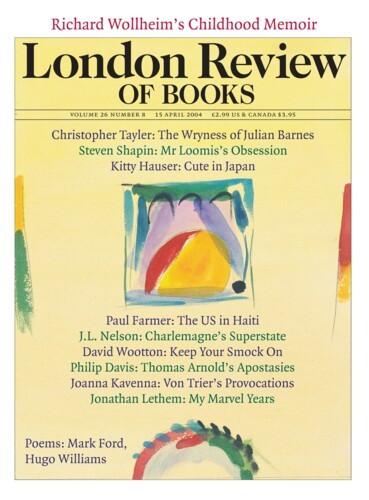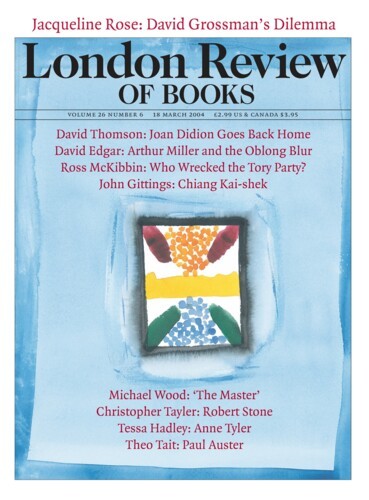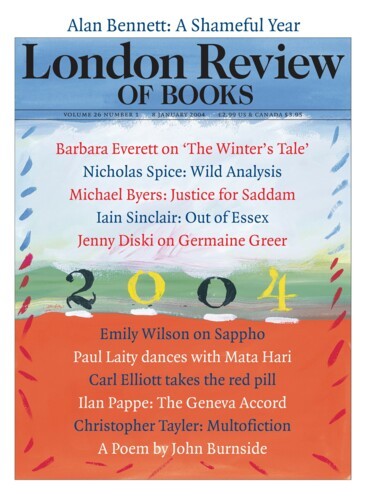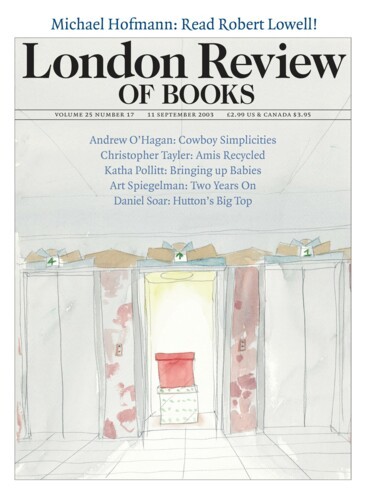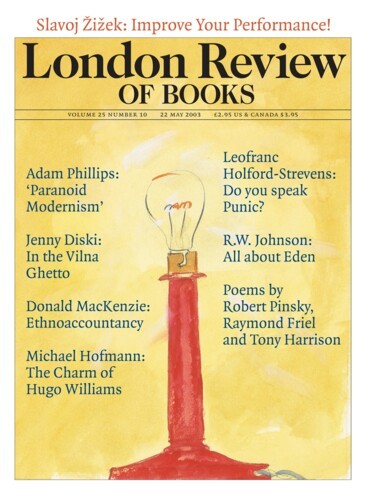Like choosing between bacon and egg and bacon and tomato: The Wryness of Julian Barnes
Christopher Tayler, 15 April 2004
Julian Barnes’s new book of short stories is concerned with old age and death. Barnes – who was born in 1946 – should have a few years to go before he experiences either condition, but his fiction has always been precociously interested in both. He visited the afterlife, in the person of a cartoon suburbanite, in A History of the World in 10½ Chapters (1989). In Cross...
